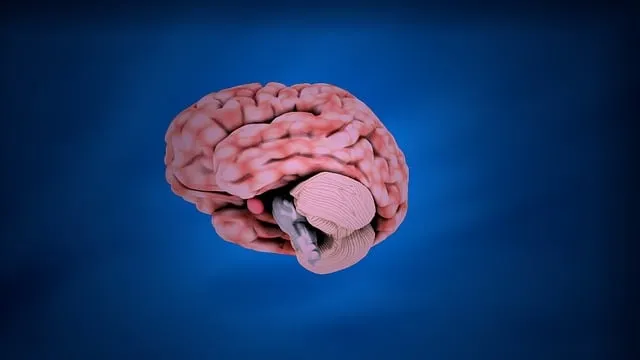Highlands Ranch Kaiser mental health programs prioritize participant safety through comprehensive risk assessment, identifying individual and societal risks. They implement proactive strategies like burnout prevention, stress management workshops, and emotional intelligence activities. These approaches, integrated with Mental Health Education, tailored communication, and emotional regulation techniques, foster resilience and improve outcomes. By addressing depression and emotional challenges, Highlands Ranch Kaiser empowers individuals to manage their mental well-being through workshops, peer support, and accessible resources, making it a leader in community mental health. Continuous improvement relies on monitoring client records, staff feedback, data analysis, and strategic adjustments based on best practices and client needs.
Highlands Ranch Kaiser’s commitment to safeguarding mental health is built upon robust risk assessment and harm minimization planning. This comprehensive strategy ensures the well-being of participants in their diverse mental health programs. The article delves into the critical process of identifying and evaluating risks specific to these services, offering insights from an expert perspective. Additionally, it explores the development of proactive harm minimization strategies tailored for Highlands Ranch Kaiser, emphasizing continuous improvement through implementation and monitoring.
- Understanding Risk Assessment: A Foundation for Safeguarding Mental Health in Highlands Ranch Kaiser Programs
- Identifying and Evaluating Risks Specific to Mental Health Services
- Developing Harm Minimization Strategies: A Proactive Approach for Highland Ranch Kaiser
- Implementation, Monitoring, and Continuous Improvement of Risk Management Plans
Understanding Risk Assessment: A Foundation for Safeguarding Mental Health in Highlands Ranch Kaiser Programs

In the realm of Highlands Ranch Kaiser mental health programs, risk assessment serves as a cornerstone for safeguarding participants’ well-being. It involves a systematic analysis of potential hazards and their impact on individuals within the program setting. By identifying risks, from acute stressors to chronic conditions, facilitators can implement tailored harm minimization strategies. These proactive measures ensure that participants receive comprehensive support, fostering a conducive environment for mental health promotion and recovery.
The process goes beyond mere identification; it encompasses the development of effective interventions. Incorporating burnout prevention strategies for healthcare providers, stress management workshops, and emotional intelligence-building activities within these programs is vital. Such initiatives not only alleviate risks but also empower participants to navigate their mental health journeys with enhanced resilience, ultimately contributing to improved outcomes in Highlands Ranch Kaiser mental health programs.
Identifying and Evaluating Risks Specific to Mental Health Services

Identifying risks specific to mental health services is a crucial step in harm minimization planning for Highlands Ranch Kaiser’s programs. These risks can vary greatly, from individual patient factors like personal history and vulnerability, to broader societal issues such as stigma surrounding mental health and limited access to resources. Evaluating these risks requires a comprehensive approach that considers the unique needs of each patient and the specific context of the Highland Ranch Kaiser mental health programs.
Effective risk assessment involves integrating Mental Health Education Programs Design, tailored Communication Strategies, and techniques for promoting Emotional Regulation. By designing educational programs that dispel myths and provide accurate information about mental health, communication strategies can foster inclusive, non-judgmental environments where patients feel comfortable expressing their concerns. Additionally, teaching emotional regulation skills empowers individuals to manage stress and potentially reduce the risk of adverse outcomes.
Developing Harm Minimization Strategies: A Proactive Approach for Highland Ranch Kaiser

Highlands Ranch Kaiser’s commitment to its community extends beyond traditional healthcare services; it involves proactively developing harm minimization strategies aimed at preventing and mitigating mental health crises. This proactive approach aligns with the growing emphasis on crisis intervention guidance, particularly in addressing rising rates of depression prevention and emotional regulation challenges among young adults. By integrating these strategies into their fabric, Highlands Ranch Kaiser becomes a beacon of hope and support for individuals navigating turbulent times.
The hospital’s harm minimization planning involves a multi-faceted approach, focusing on early intervention, education, and evidence-based practices. This includes tailoring programs to suit the unique needs of the community, such as hosting workshops on emotional resilience, promoting peer support networks, and providing accessible resources for mental health self-care. Through these initiatives, Highlands Ranch Kaiser not only seeks to reduce the severity of crises but also foster a culture where individuals feel empowered to take charge of their mental well-being.
Implementation, Monitoring, and Continuous Improvement of Risk Management Plans

The successful implementation of risk assessment and harm minimization plans requires ongoing monitoring and adjustments. At Highlands Ranch Kaiser mental health programs, this process involves regular reviews of client records, staff feedback, and data analysis to ensure that strategies remain effective and relevant. By integrating communication strategies within these plans, mental health professionals can facilitate open dialogue with clients, fostering a collaborative environment for mood management.
Continuous improvement is achieved through identifying areas for enhancement during monitoring periods. This proactive approach encourages the adaptation of risk assessment methods and intervention techniques as new research or best practices emerge. For instance, regular updates to the risk management plans at Highlands Ranch Kaiser may include incorporating innovative tools for early detection or refining communication strategies based on client feedback, ultimately enhancing the quality of care provided.
Highlands Ranch Kaiser’s commitment to its mental health programs is evident through a comprehensive risk assessment and harm minimization planning process. By understanding the foundational principles of risk assessment, identifying and evaluating unique risks within mental health services, and proactively developing effective strategies, the organization ensures a proactive approach to safeguarding participant well-being. Continuous implementation, monitoring, and improvement of risk management plans further solidify Highlands Ranch Kaiser’s dedication to delivering quality care and fostering a supportive environment for all mental health services.





